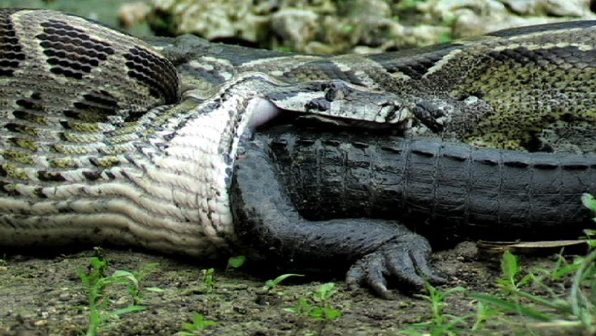 I’m serious,
I’m serious,
I’m as much a techno-geek as the next guy, I’ll leap to new technology and sometimes I leap before I look.
BUT we all know writing a text message on your apple or google device often leads to nonsensical messages.

It’s become a running joke & there are sites dedicated to some of the more amusing autocorrect faux pas.
Knowing this, why do “Journalists” continue to write full articles on these devices and then hit publish?
Heck, I’m writing short pieces in this blog and I screwup using a computer, a 21” screen and I have told the computer not to autocorrect for me.
What makes someone writing an article on a phone or phablet with full autocorrect turned on think they’re going to generate something error free or readable?
This is especially evident since most autocorrect employs heuristic algorithms which often amplify an initial error.
The first word autocorrect replaces for the user dictates the selection of the next probable words used in the sentence. If the user is accepting words based on the first few characters typed,and aren’t really reading what’s on the display, the entire meaning of the sentence can be very different from what was intended.

Scan the headlines prominently displayed on various news feeds and the assault on English is clear.
Most of the time you can figure out what the author meant.
Two bottle of beers were found in a shipwreck in Finland and according to its chemical analysis, brewed beer before probably tasted the same as modern day beers

Then there are winners like this one. In addition to being almost completely nonsensical, subsequent articles from NASA seem to be contradicting this report.
It is being anticipated that after experiencing a short circuit, Curiosity Mars rover has its robotic arm left to be obsolete. Scientists believe that the explorer could continue to exist as being disabled for good.
How are these pieces getting past an editor?

At first I thought this kind of thing was actually due to translation errors. I’m not so charitable anymore. I’ve seen “Journalists” at local events using their Tablets and Phones as voice or video recorders. I saw one guy trying to use a speech to text application so he didn’t have to write anything, he just had to show up at an event. I noticed him because he was complaining about the errors in recognition because his cell coverage was too weak.
I think we should go back to the days of real reporters. You remember don’t you? People who listened, asked questions, and did research about a piece. They verified information and vetted their sources then fought with their editors about what needed to be cut or included before publication. You know… Professionals.

In thinking about this and trying to read my morning news I find myself wondering if perhaps this is just another artifact of our over-reliance on technology. I’m not sure reliance is really the appropriate term. Perhaps its better described as an almost religious Faith in our technology.
That would explain why so many otherwise rational people lose their minds when the power goes off.
Remind me to tell you about my experience sitting in a bar after the San Jose quake sometime…
Update March 8, 2015
I had to include this article that showed up at the top of Google News on Sunday.
This is a prime example of an article desperately in need of an Editor. The reporter would have been better served by just republishing the press release from Fish & Game.
At some point in their scholastic career they probably should have been told that they were not all that clever. Oh, right we don’t tell children that they failed at anything anymore. We just tell them they’ve done less good than their peers.
In the spirit of George Orwell then, Here, for your entertainment is a double plus un-good piece of reporting.
EMPIRE STATE TRIBUNE – Science Department
Lacey Act Snake of 1900 Forbids Drawing Venom from Constrictor Breeders, Owners and Lovers
March 8, 2015

Snake partners are advising the federal government not to tread on them Saturday taking after a ban on four extensive types of constrictors. The ban, declared Friday by the U.S. Fish and Wildlife Service, will restrict importation and interstate transport of the reticulated python, DeSchauensee’s anaconda, the green boa anaconda and the Beni anaconda, all of which were proclaimed “injurious wildlife” under the Lacey Act of 1900.
The move is intended to help stop the spread of huge snakes in the wild where authorities say they are debilitating jeopardized species. In an announcement Friday, Dan Ashe, director of the Fish and Wildlife Service, said huge constrictors are costing the American open a large number of dollars in harm and “placing at risk” 41 protected or endangered species in Florida alone.
Be that as it may raisers and vendors of the snakes say the new standards will devastate their jobs while managers say the ban is superfluously prohibitive. Taking after the declaration, two contending petitions were dispatched on Change.org, requiring an inversion of the choice. All things considered, the petitions have drawn about 2,000 marks in under a day.
A few signatories, distinguishing themselves as constrictor holders or specialists, portrayed the issue as a “Florida problem,” saying pet managers in whatever is left of the nation ought not to be rebuffed for it. “I keep these [animals] and I believe they are misunderstood and are falsely listed on the Lacey Act because of an isolated problem in Florida,” one commentator composed, including the government ought to consider controlling the snakes “instead of a ban.”
In an interview with the Palm Beach Post, Matt Edmonds, who makes his living rearing and offering reticulated pythons, said the office ought to have restricted the ban to Florida.
Nonetheless, the Center for Biological Diversity said Friday the ban doesn’t go sufficiently far. In an announcement, the association scrutinized the legislature for not confining the broadly exchanged boa constrictor, which the gathering said is dislodging local reptiles in Puerto Rico and undermining untamed life in the United States.
“These exotic snakes pose an unacceptable — and preventable — risk to our nation’s most treasured natural habitats,” Collette Adkins, a lawyer and scientist for the middle, said in an announcement. “Unfortunately, it appears that the agency caved to pressure from snake breeders in its decision not to restrict trade in the boa constrictor — a snake that is clearly damaging to U.S. wildlife.”
The new regulations are relied upon to be distributed in the Federal Register, and the restrictions will become effective 30 days after distribution.
